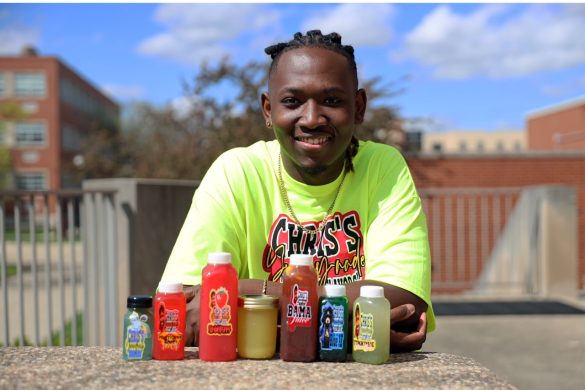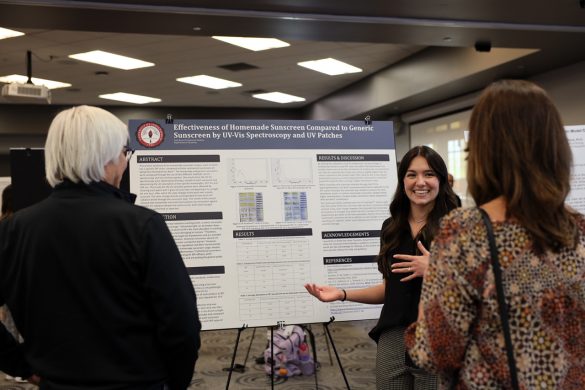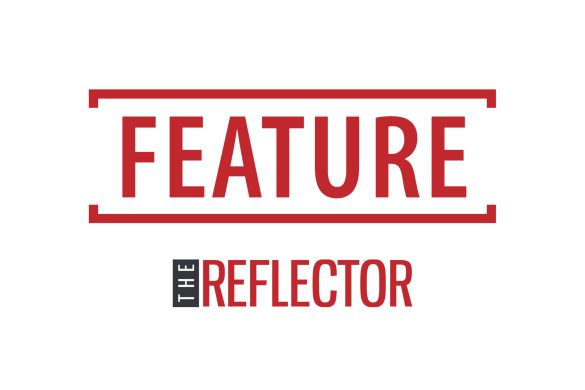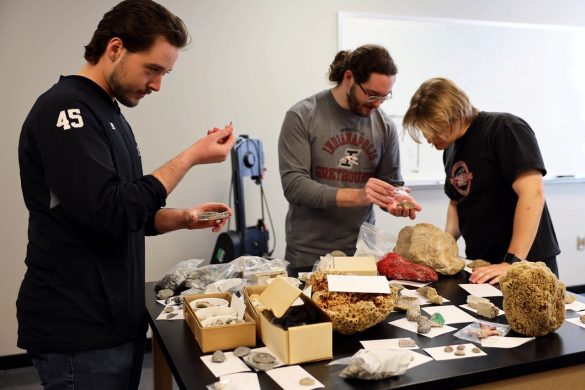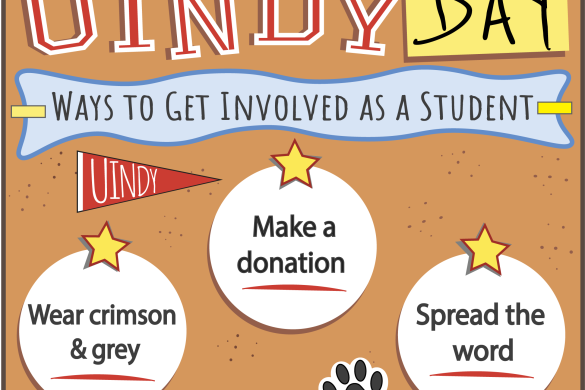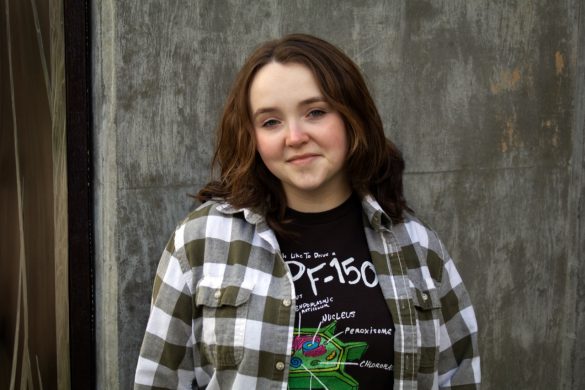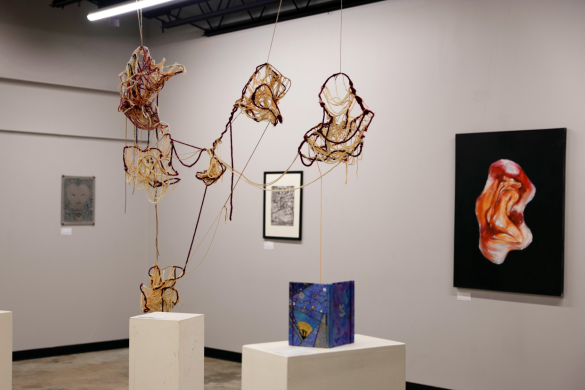Indiana has the second highest rate in the nation of forced sexual intercourse for females in 9th-12th grade, according to Indiana Public Media, and 15 percent of sexual assaults and rapes in Indiana are reported to the legal authorities. The Office of Women’s Health defines sexual assault as, “any type of forced or coerced sexual contact or behavior that happens without consent.” Sexual assault does not just include rape, but attempted rape, child molestation, sexual harassment and threats. Both men and women are affected by sexual assault.
On Sept. 18, 2015, Pop star Lady Gaga, released a single and music video for her song,“Til It Happens To You.” The video illustrates different examples of sexual assault and abuse on college campuses throughout the country. Lady Gaga is not the only celebrity who is taking a stand on sexual assault. Celebrities like Rose Bryne, Joel McHale, Kevin Love, Randy Jackson and Connie Britton have also taken a stand against sexual assault and took part in the White House’s PSA “It’s On Us.”
Sexual assault on campus
According to the National Sexual Violence Resource Center, one in five women and one in 16 men are sexually assaulted while in college.
UIndy student Sally* said she was sexual assaulted by someone she knew for about 10 years.
“People are always afraid they’ll get kidnapped off the street, but usually it’s the people you know the best,” Sally said. “I had known this guy for half my life. He was one of the only people I knew coming here.”
Sally said her relationship with her assaulter began as a friendship but turned into something more and he began to move more quickly than she would have liked. She said he would make stereotypical remarks like, “I really like you,” and “This could really go somewhere.”
“I got this false sense that maybe he’s not perfect, but he cares about me,” Sally said.
She said the worst was on March 1, 2014, in his residence hall on campus. She said things started on the far bed on the other side of the room, without her permission, and she finally got him off of her.
“Luckily for me, he wasn’t much bigger than me,” she said. “He tried, but he obviously accomplished more than I would have liked. But it didn’t end up being the worst-case scenario situation you usually hear.”
She remembered sitting in the corner of the bed nearest to the door shaking and crying waiting for him to escort her out of the building, due to the escort rule in the freshman dorms. She said her assaulter began to switch the fault and turned the situation into something for which she felt guilty.
“He started to get upset and tried to make me feel bad by saying things like, ‘I can’t believe I did this,’” Sally said.
Sally said she had a hard time realizing that it was not her fault and that he had assaulted her. She said she knows that women often feel at fault when sexual assault occurs, but she wants people to know that if this happens, it is not because of what they do or wear and if someone says no, it means no.
“Obviously, I knew this entire thing wasn’t my fault, but I felt like I did have a part of the blame because I kept going back to his room,” Sally said. “It was smaller stuff at first, but I kind of pushed things to the side that shouldn’t have been pushed to the side. So when I was talking to one of my friends and explaining what happened, I told her I had a hard time saying something, because I didn’t want to get him in trouble, because I’d feel bad. But I shouldn’t have felt bad for getting him in trouble for something he totally did. I just felt bad. But then eventually, I ended up telling, because [of] a realization that this wasn’t right.”
It took Sally awhile to be OK with sharing her story, but she said the situation does not bother her as much as it had in the past. She saw that she might have the opportunity to help others by sharing her experience.
“I realized [that] if this were only going to effect me, like he wouldn’t ever do it again, I probably wouldn’t have said anything,” she said. “But I came [to] the realization [that] if someone came up to me and told me that he had done that to them and I hadn’t said anything, I’d feel awful. So that is what finally got me to say something, realizing that it wasn’t just going to affect me.”
After the whole experience was over, she said she felt lucky to have had the authorities believe her.
“I didn’t realize what kind of blessing it was until later, but the school actually believed me,” she said. “I know that can be a problem because, unfortunately, some people say things that aren’t true, but I think the people at this school can tell when you’re hurt or when there is an issue, even if it’s not the worst-case scenario. I was afraid they were going to say, ‘This isn’t even sexual assault. Just get over it.’ Because it hadn’t gone all the way.”
Sally said her situation was never brought to the police, per her request, but disciplinary actions were handled through the University.
Domestic sexual assaults
Sexual assault occurs not just on college campuses, but also domestically. The NSVRC reports that 34 percent of people who sexually abuse a child are family members and more than one-third of women who report being raped before age 18 also experience rape as an adult.
UIndy student Mary* was a victim and survivor of sexual assault. She was assaulted when she was seven years old and her assaulter was 16 years old.
“I didn’t speak out about it at all. I didn’t even talk about it until I was 15,” she said. “We got caught by my ‘fake aunt,’ who is his real aunt. She walked in and saw us touching each other. She said, ‘Young girls aren’t supposed to do this, and if you tell your mom, I’m going to lie.’ And that is why I never told anyone, because I was scared.”
When Mary told her mother about what happened, she said her mother was furious. Later, her assaulter was arrested for doing the same thing to other people. Mary said she just wishes she had said something sooner.
“I never did speak up. So I think my encouragement for other girls is speak up even if you feel like it can hurt the person that is assaulting you,” she said. “It’s about you, not them. I think a lot of times you try to take the ownership of the person, like ‘oh it’s my fault,’ but it’s not. Speak up and speak out, because someone else could be getting hurt, and you don’t even know it. Yes, being that voice is hard, but the relief afterwards is liberating in a sense of you really do feel like a burden has been lifted off of you. Trust your gut and trust your instincts, because you could be helping others.”
UIndy resources
No matter the circumstance, using the resources on campus is important, according to Sally and Mary.
“It’s important that people are believed when they tell these things,” Sally said. “So if the school is divided on it, or indifferent, people aren’t going to feel comfortable sharing. I love that they started UIndy PACT just after my incident. I thought it was really neat to see how the school was like, ‘Hey, this is a major issue, and we notice it, and we are going to try to help.’ I thought that was really neat.”
UIndy offers free counseling for up to three sessions, and UIndy PACT also offers students to help when help is needed. If a student is experiencing sexual assault and needs help, he or she can visit the Student Counseling Center located in Schwitzer Student Center, suite 210. The counseling center has crisis hours as well if the situation is urgent, if someone is not available or the students decides to talk to someone anonymously, he or she can call 1-800-656-HOPE.
*Names were changed to protect students’ identities.
